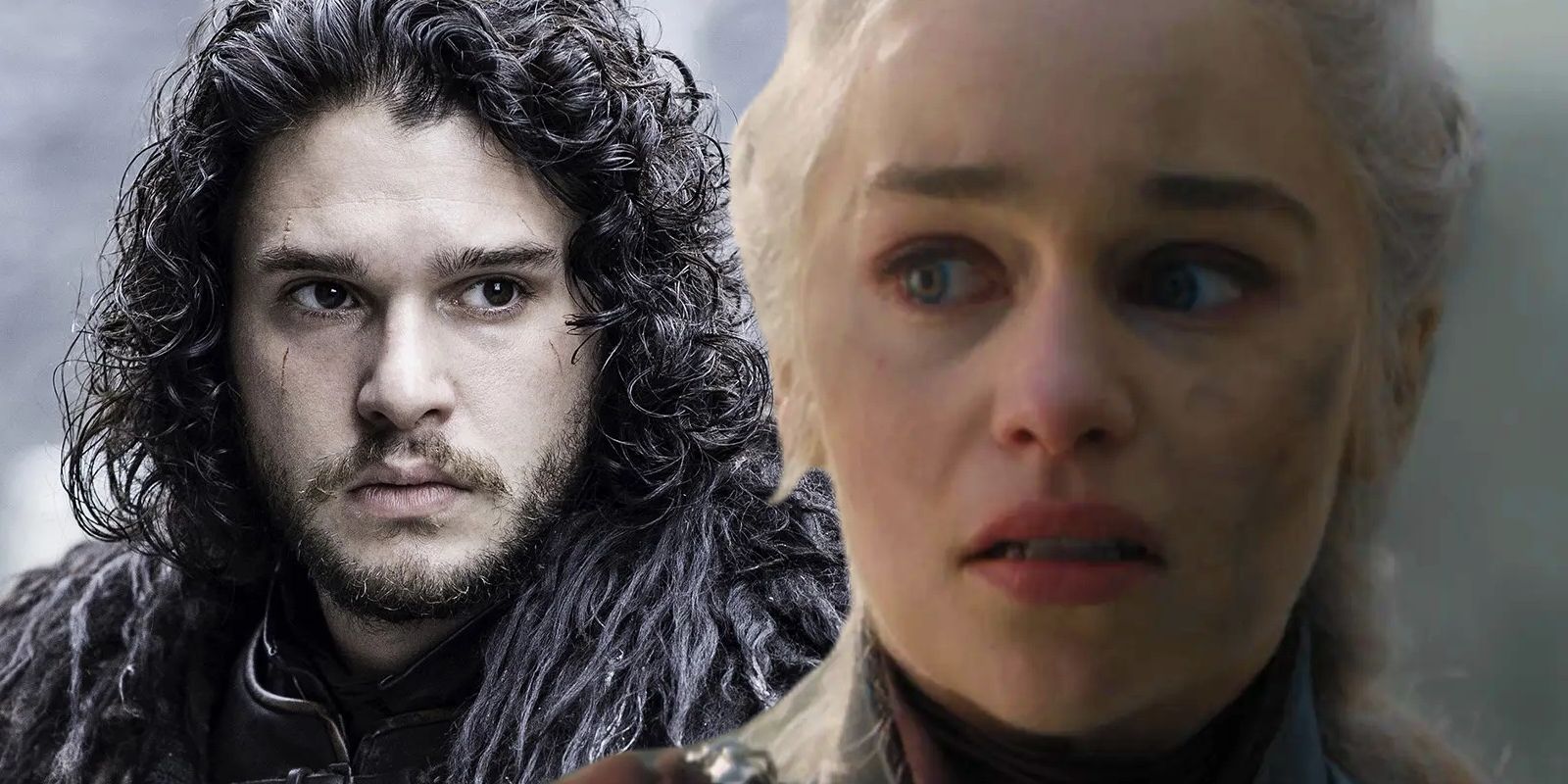
Game of Thrones was one of the biggest and most popular television series of its time, but it will forever be marred by what most fans agree is a terrible final season. After years of buildup, the eighth season of HBO’s hit fantasy series seemingly fumbled every storyline it had set up, leaving fans utterly devastated by the finale. Many felt that the eighth season felt rushed and that the conclusions to certain storylines were unsatisfying and disappointing. When mentioning popular shows with the worst finales, Game of Thrones is almost always brought up as a contender.
I recently rewatched Game of Thrones in its entirety and was left surprised by my feelings after completing the series for a second time. I hadn’t been a fan of the series as it was coming out and first started watching it in anticipation of the first season of House of the Dragon. Going into the final season, I knew most of what fans hated about the finale and mostly agreed with their assessments once I’d experienced it for myself. However, my second viewing left me feeling quite differently. Five years after it first came out, I don’t think the final season of Game of Thrones is that bad.
Game of Thrones’ Final Season Actually Works–For the Most Part
There Are Plenty of Aspects in Season 8 That Work Well for the Series

The Game of Thrones Franchise
Series
Years
IMDb Rating
Rotten Tomatoes Score
Popcornmeter
Streaming
Game of Thrones
2011-2019
9.2/10
89%
85%
Max
House of the Dragon
2022-Present
8.4/10
86%
79%
Upon a rewatch, I found myself entertained by most of Game of Thrones‘ final season–up to a certain, very distinct point (we’ll get to that later). While there is no doubt that the six-episode season is heavily rushed and could have benefitted from an extended run, I found most of the plot points to be enjoyable television. “The Long Night” in particular seems underappreciated to me. The long-awaited battle between the forces of the living and the forces of the dead disappointed many fans at first, with many complaining about the episode’s dark filter that makes it almost impossible to see what is going on. This is a valid complaint but, once you turn the television brightness all the way up, the episode is quite entertaining. A near-feature-length conflict between the Night King and a host that includes dozens of fan-favorite characters, “The Long Night” is one of the most intense and meticulously detailed events in Game of Thrones. In-universe, the battle includes expert strategy and several well-earned character deaths. Behind the scenes, the battle involves several interesting creative choices, such as the surprising final sequence in which the surrounding sounds of the conflict are tuned out in favor of a haunting piano score. The battle has everything that Game of Thrones fans loved about previous seasons and, while it might conclude too quickly for some, is a satisfying conclusion to the years-long arc.
Many fans also understandably take issue with Daenerys Targaryen’s character arc in the final season of Game of Thrones. By the end of the series, Daenerys stops listening to her advisors, ignores important battle strategies, and eventually turns into a genocidal maniac whom Jon Snow is forced to kill to stop her reign over Westeros. For fans who followed Daenerys for eight years, this was a disappointing ending for her character. While I agree that Daenerys’s ending is tragic, I think it works in the context of the series. Game of Thrones was never a feel-good story destined for a happy ending, but rather a meditation on the inevitable corruption that absolute power brings on a mortal man or woman. Daenerys, the daughter of the Mad King Aerys II, was never wholly good. Throughout the entire series, her closest advisors continuously had to pull her back from the brink of genocide–and they didn’t always succeed. The lingering question over Daenerys’s character was never “Will she be queen?” Rather, it was always “What kind of queen will she be?” Seeing Daenerys finally get the throne she had fought so hard for only to abuse its power is heartbreaking–but that’s the point. Fans are supposed to witness the tragedy of a woman who once could have been a great ruler but suffered one too many injustices that changed her.
One of the most controversial parts of Game of Thrones Season 8 is Daenerys’s decision to run King’s Landing to the ground in anger after winning the war. This infamous sequence upset many fans of Emilia Clarke’s iconic character, who felt it wasn’t in her personality to do such an awful thing. Upon a rewatch, however, I found that this was in her character since Season 1. Daenerys may fight for justice and freedom, but she has never shied away from callously punishing those who pushed her too far. Daenerys publically hanged thousands of slave masters along roads, burned men to death on multiple occasions, and even watched as her own brother was callously killed in her name. At a certain point, Daenerys stopped asking whether her punishments were just and began believing that she herself was justice. The burning of King’s Landing was the culmination of her self-importance, which began building as far back as Season 1. Furthermore, the sequence is expertly brought to life in an extended sequence that takes viewers to the ground level of the destruction, watching in terror as the city is burned to the ground.
My most recent rewatch of Game of Thrones leads me to believe that many of fans’ complaints about the final season don’t hold up anymore. However, there is a distinct point in which the finale absolutely does go way off track.
Where Does Game of Thrones Season 8 Go Wrong?
The Final Episode of Game of Thrones Doomed the Final Season

Game of Thrones Season 8 Episode Ratings
Episode
IMDb Rating
8×01: “Winterfell”
7.6/10
8×02: “A Knight of the Seven Kingdoms”
7.9/10
8×03: “The Long Night”
7.5/10
8×04: “The Last of the Starks”
5.5/10
8×05: “The Bells”
5.9/10
8×06: “The Iron Throne”
4.0/10
I firmly believe that fans wouldn’t have been so hard on Game of Thrones Season 8 if it weren’t for its abysmal final episode. Certain creative decisions in previous episodes, such as the decimation of Jaime Lannister’s redemption arc, were disappointing, but the decisions made at the end of the series are angering. While I found that “The Long Night” and “The Bells” have aged better than I would have expected, the series finale, “The Iron Throne” has only gotten worse over time. I don’t actually have a problem with the decision to have Jon murder Daenerys to save the kingdom from her inevitably oppressive rule. I think this is a suitably tragic ending for both characters and a challenging decision for Jon, who has always been a bastion of morality. However, I do have a problem with everything that comes after this moment, namely the ending of the ever-infamous “game of thrones.”
Viewers unanimously agree that, of all the characters who could have become the new leader of Westeros at the end of the series, Bran Stark is the worst choice writers could have possibly made. The last surviving son of Eddard and Catelyn Stark, Bran was never one of the show’s most interesting characters (in fact, both times I watched the series, I failed to notice that he was completely absent in Season 5 until he suddenly reappeared in Season 6). However, I didn’t have a problem with Bran’s story until Tyrion Lannister inexplicably decided to make him the new king. Suddenly, his entire story becomes so much more important–and none of it was building to his becoming king. Bran had categorically recused himself from such a position as the Three-Eyed Raven, deciding that he should not be involved in petty politics and solving menial problems for mortal kingdoms. Naming Bran as the new king nullifies everything that came before, as the rest of the political maneuvering from previous seasons becomes pointless.
It is this creative decision that I feel doomed Game of Thrones. It makes no sense and doubtlessly arose from a desire to surprise fans–even if the surprise lacked even a semblance of reason. Besides, we all know who should have been named king at the end of the series.
Game of Thrones fans will probably never warm to the turbulent final season of the series. However, I think some of the heavily criticized elements of the season deserve a reevaluation. Some creative elements hold up rather well while others earn the backlash they got.

